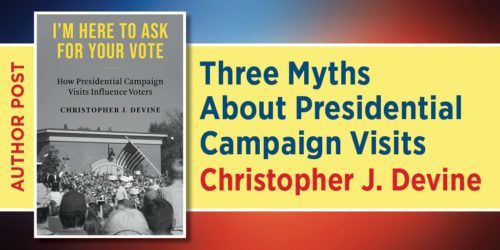The Myth of the Xenophobic Voter
Alexander Kustov

When the Supreme Court recently ordered the US government to bring back Kilmar Abrego Garcia—an unauthorized immigrant with a US citizen family who had been hastily deported to El Salvador in defiance of a judge’s order—it marked a stunning rebuke of the Trump administration’s immigration tactics. The case has sparked a political firestorm: To Trump’s aides and supporters, Abrego Garcia has been an “illegal alien” and suspected gang member who needed to be removed no matter what the law says. To critics across the political spectrum, his expulsion is a grave injustice and, potentially, a constitutional crisis.
This clash revives a familiar dilemma in immigration debates, often cast as a moral struggle between humanitarian compassion for the lives of migrants and draconian cruelty towards foreigners rooted in intractable xenophobia. Indeed, in the United States and across Europe, pundits regularly portray widespread public opposition to immigration—especially when it is illegal—as something that brings populists to power and ultimately enables such cruelty. But is that really what voters want?
As someone who has spent years researching how people form and change their views on immigration issues, I believe this narrative of an inherently xenophobic voter fundamentally misses the mark. Most citizens are not stubbornly anti-immigrant—their concerns are nuanced, and grounded in what they perceive to be public good, even when they can’t be fully informed.
In my new book, In Our Interest: How Democracies Can Make Immigration Popular, I show that only about 10–20% of voters in the United States and other democratic societies are consistently and categorically hostile to most immigration; a similarly small share is unconditionally welcoming. The vast majority are what I call altruistic nationalists—they hold conditional preferences, supporting immigration only when it demonstrably benefits them and their existing communities in terms of economic contributions, potential cultural fit, or effective rule enforcement.
Opposition to Immigration Is Rooted in Reality, Not Just Blanket Xenophobia
It’s hard to deny that some people simply dislike foreigners—especially those from ethnically different backgrounds—no matter what. For this subset of people, opposition to immigration is part of an entrenched racial animus that we know is a stable personality trait and very hard to change. For most people, though, opposition to immigration is more complicated. Most people worry about immigration because they genuinely care about protecting their compatriots’ jobs and well-being. They may even feel torn—sympathetic to migrants’ plights yet wary of the consequences for their own communities. Far from being irrational, most voters are making a “sociotropic” cost-benefit calculation about what they think is better not just for them, but also for their country.
Voters are never fully informed, but they genuinely want immigration to serve the public good. As a result, the same people who dislike immigration in general may still support specific pro-immigration policies that they perceive as beneficial to their nation. In fact, we see again and again that most people, including conservatives, already support freer immigration for skilled workers and entrepreneurs regardless of country of origin.
Unfortunately, political elites often misread this nuance. Many on the pro-immigration side assume that simply preaching the virtues of immigration or casting opposition as prejudiced will, on its own, change minds. Indeed, US progressives have often leaned into moralistic rhetoric, but have ignored growing public frustration with border and asylum mismanagement. While policy experts still debate how much of it was due to external factors, it is hard to deny that the Biden administration presided over record humanitarian arrivals—without ever managing to convince voters that the system was under control.
Meanwhile, on the more anti-immigration side, populists try to stoke fears by portraying immigrants as criminals or invaders when they are unauthorized—and as job-takers and cheaters when they are legal. As exemplified by the second Trump administration, many politicians who oppose immigration exploit popular discontent to promote harsh and counterproductive measures that are increasingly unpopular even among their own voters.
In the end, both sides have a poor track record in changing minds or even retaining public support for their own policies because they miss what people actually want: competent, uneventful immigration governance that brings in more workers and other needed people who are aligned with national values.
Preaching compassion without addressing people’s genuine concerns rings hollow. Embracing cruelty might please the base, but it alienates moderates who care about sound policy consequences.
What Demonstrably Beneficial—and Demonstrably Harmful—Policies Look Like
If voters respond to policy outcomes, not just messaging, then the path to popular support is simple: implement better immigration policies that obviously benefit society and reflect public values, while avoiding measures that are obviously contrary to the public good. For instance, attracting skilled workers and addressing labor shortages—while enforcing existing laws in a fair and transparent way—as countries like Canada have historically done—can all improve public trust.
When immigration appears orderly—when immigrants are seen as paying taxes, creating jobs, and revitalizing communities—it doesn’t feel like a threat. And demonstrably beneficial immigration goes well beyond top talent. New programs for seasonal workers, international students, community revitalization, and family reunification can also gain support when these immigrants’ contributions are made clear. Even humanitarian admissions can win approval when they don’t dominate the system and when they affirm principles like reciprocity, meeting community needs, or aiding wartime allies.
By contrast, public support collapses when immigration appears chaotic, lawless, or poorly managed. Nothing alienates voters faster than the perception that authorities are not in control. Unclear benefits also breed backlash. Generous humanitarian policies, despite their moral appeal, provoke resistance when they seem to be out of step with public priorities and thus fundamentally mismanaged, no matter the actual processing capacity.
Crucially, public support is not about favoring selfish enforcement over humanitarian commitments. Public dissatisfaction also arises from policies that are needlessly cruel while offering no obvious benefit. Trump’s family separation and Muslim ban policies during his first term—and his current rushed deportations and visa revocations—are clear examples of how punitive actions, untethered from public interest, can also provoke backlash but of the pro-immigration variety.
The Path Forward: Persuading Voters Through Better Policy, Not Rhetoric
That brings us back to Abrego Garcia. His rushed deportation was not only unjust and unlawful, it was also politically unsound. It violated Americans’ deep-seated sense of fairness and commitment to due process—the very values that any sustainable policy, on immigration or otherwise, must uphold. Recent polling shows that most people, including the majority of independents and many Republicans, oppose Abrego Garcia’s deportation as well as the current administration’s draconian approach in general.
If immigration skeptics and advocates can agree on one thing, it’s that actions and policies like this serve no one’s interest. Anyone, conservative or liberal, who wants better immigration outcomes—or wants their own immigration policies to be popular—must move beyond blaming or pandering to supposedly “xenophobic” voters and instead propose policies that better reflect public interests. That means enforcing existing laws in good faith, but also reforming them to align with our economic needs and shared values. It means relying on tangible policy results, not rhetoric alone, to convince most voters, including skeptics, that immigration can be managed effectively and deliver broad benefits.
The myth of the xenophobic voter has long obscured a more optimistic reality. Abrego Garcia’s ordeal is a vivid reminder that misreading public opinion from either extreme leads to failure. The Trump administration’s further reversal on student visa cancellations and growing backlash against wrongful deportations underscore how even previously popular partisan hardliners can lose ground when their actions violate public expectations.
Opposition to immigration is not fixed. Immigration can be popular—but only if it is demonstrably beneficial. When offered real choices—not empty appeals—voters are more than willing to support immigration policies that benefit both citizens and newcomers. The challenge for policymakers is to provide those choices. The sooner they accept this, the sooner they can replace the cycle of backlash and overreach with policies that are, in every sense, in our interest.
To read more about how to and not to persuade people on immigration.
Alexander Kustov is an assistant professor in the Department of Political Science and Public Administration at the University of North Carolina at Charlotte, and the author of In Our Interest: How Democracies Can Make Immigration Popular.
Categories:Author-Editor Post/Op-EdInternational RelationsPhilosophyPolitics
Tags:Abrego GarciaAlexander KustovAltruistic NationalismEconomic Contributionsimmigrationimmigration debatesImmigration GovernanceIn Our InterestInform Your VotemigrantsPolicy ReformPolitical Rhetoricskilled workersStay InformedTrump Immigration PolicyU.S. VotersXenophobiaxenophobic voter








